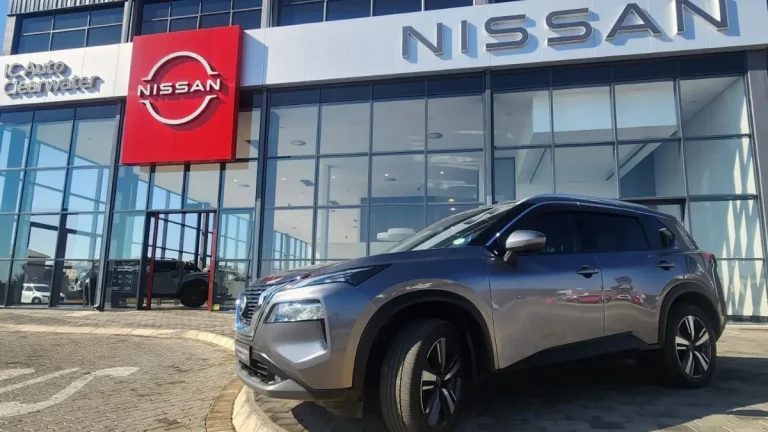Nissan South Africa is recalling 1,665 Qashqai models, marking a spike in vehicle defect notices in 2025. The National Consumer Commission (NCC) revealed the recall this week, pointing to a sharp rise in automotive safety alerts and the urgent need for greater consumer vigilance.
Thank you for reading this post, don't forget to subscribe!The affected vehicles were sold nationwide between 4 May 2021 and 17 October 2024. This development follows a separate October recall by BMW Group South Africa, which pulled 12,491 vehicles from the market due to other defects. Volkswagen and other manufacturers have also announced recent recalls, indicating a growing trend in safety interventions across the industry.
ALSO READ: New VW Transporter Models Arrive in South Africa – Prices Officially Out
Fuel Pipe Defect Raises Red Flags
Nissan traced the issue to the fuel system. The manufacturer reported that the fuel pipe could move within its retaining clip during engine operation. This movement may cause friction and wear, eventually leading to a perforation in the pipe and fuel leakage.
This defect, though rare, introduces a fire risk due to potential fuel exposure. It adds pressure on vehicle owners to act promptly and avoid danger to themselves and others.
Free Repairs Offered, Immediate Action Needed
Owners of affected Qashqai models are encouraged to visit an authorized Nissan dealership for a free inspection and, if necessary, repairs. The NCC stressed that a swift consumer response is essential for the success of any recall effort.
More Recalls in 2025: A Sign of Better Oversight?
The NCC has registered a notable increase in the number of vehicle recalls in 2025. This surge reflects tighter industry oversight, improved diagnostic systems, and more proactive safety measures. Increased collaboration between regulators, manufacturers, and consumers is also contributing to quicker turnaround times on identifying and resolving issues.
Better quality checks during the lifespan of a vehicle mean defects are caught earlier. Automakers are stepping up communication and recall protocols to resolve safety risks before they escalate.
Recalls, in this context, are not failures but signs of a functional consumer protection framework. Acting before a malfunction causes damage or injury shows a shift towards prevention.
Accountability for Manufacturers
Producers have a legal responsibility to ensure their products are safe, durable, and meet their intended function. The NCC reminds manufacturers that recalls must be treated with urgency and transparency, with clear and timely communication to consumers.
For Gauteng drivers, many of whom rely on cars for daily commuting, the recall represents more than a mechanical flaw. It touches on broader issues of trust, economic mobility, and public safety. Vehicle defects, even seemingly minor ones, can escalate quickly in high-traffic regions like Johannesburg and Pretoria.
Taking Recalls Seriously
Some vehicle owners still dismiss recalls as irrelevant. But this can be dangerous. Faults such as compromised fuel lines, especially in congested areas, can become serious hazards.
Drivers are advised not to delay.
Checklist for Nissan Qashqai Owners (May 2021–October 2024):
- Visit Nissan’s website or dealership to verify if your vehicle is affected.
- Schedule a free inspection immediately.
- Stay informed about updates through NCC alerts or official Nissan communications.
- Share the information with other Qashqai owners to ensure wide awareness.
Turning Awareness Into Action
The rise in recalls highlights the importance of both industry accountability and consumer responsibility. Vehicle safety doesn’t end with manufacturing; it relies on informed and proactive drivers.
Taking an hour for a free inspection could be the difference between safety and risk. In a province where daily traffic is intense and reliability is essential, drivers can’t afford to ignore recall notices.
If your vehicle falls under this recall, act now. Peace of mind isn’t just a perk; it’s essential. Protect yourself, your passengers, and your fellow road users by taking the necessary steps today.




